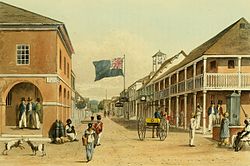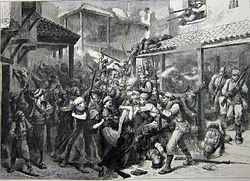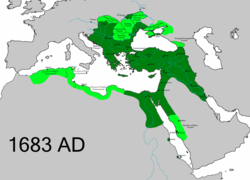This article needs to be updated.(March 2025) |
This is a list of territories and polities that have been or are considered colonies.
Contents
- Colonies of European countries
- British
- French
- Russian
- German
- Italian
- Dutch
- Portuguese
- Spanish
- Austrian
- Danish
- Belgian
- Swedish
- Norse
- Norwegian
- Colonies by Oceanian countries
- Australian
- New Zealander
- Colonies by Asian countries
- Japanese
- Colonies by Pan-American countries
- American
- Mexican
- Ecuadorian
- Argentine
- Chilean
- Colonies by African countries
- South African
- Moroccan
- Colonies by former countries
- Ancient Greece
- Ancient Egyptian
- Ancient Roman
- Carthage
- Chola (Tamil)
- Curonian
- Genoese
- Ottoman (Turkish)
- Sicilian
- Venetian
- See also
- References


























